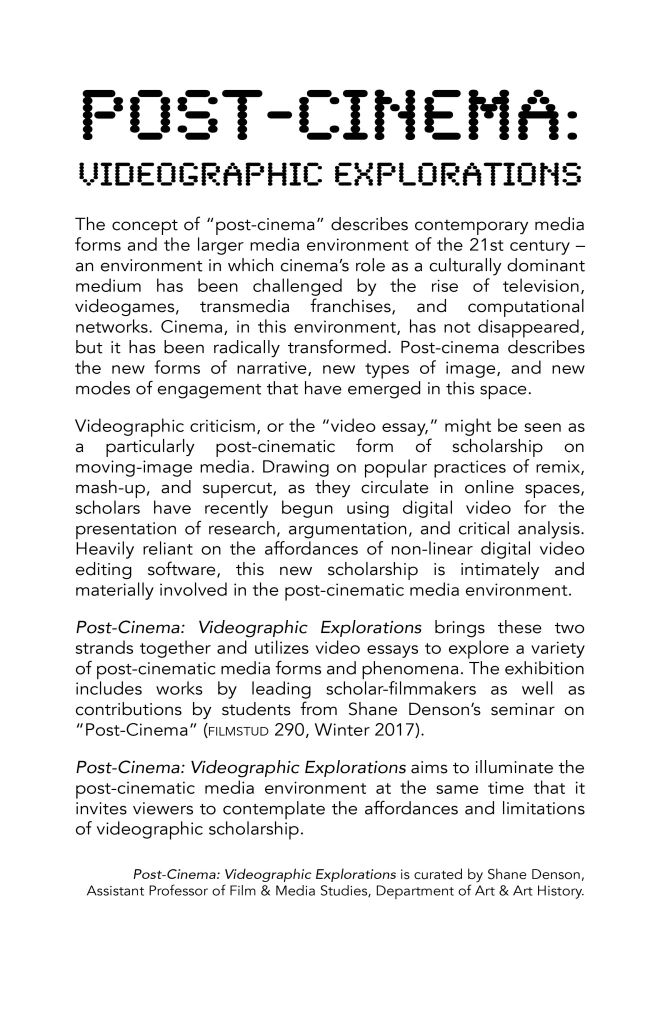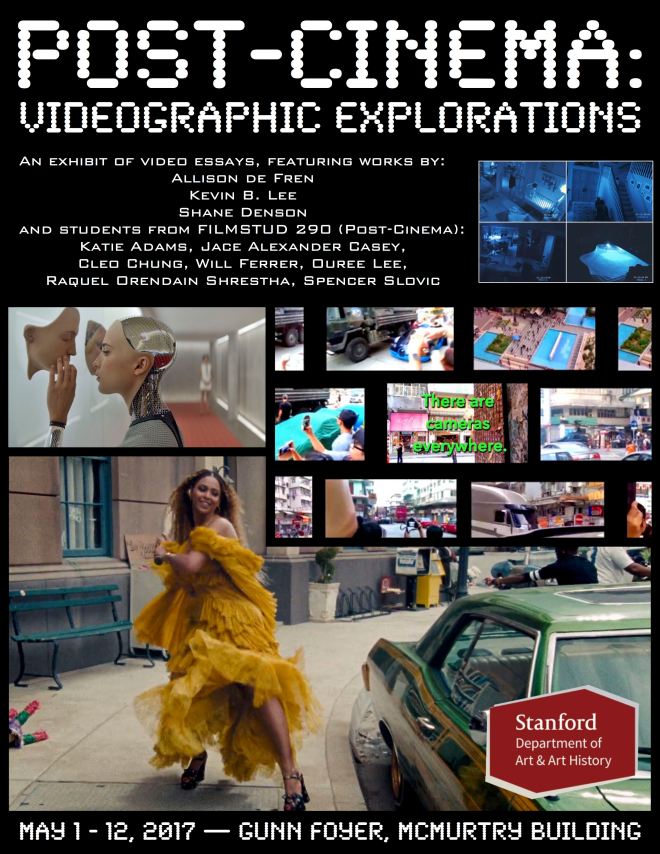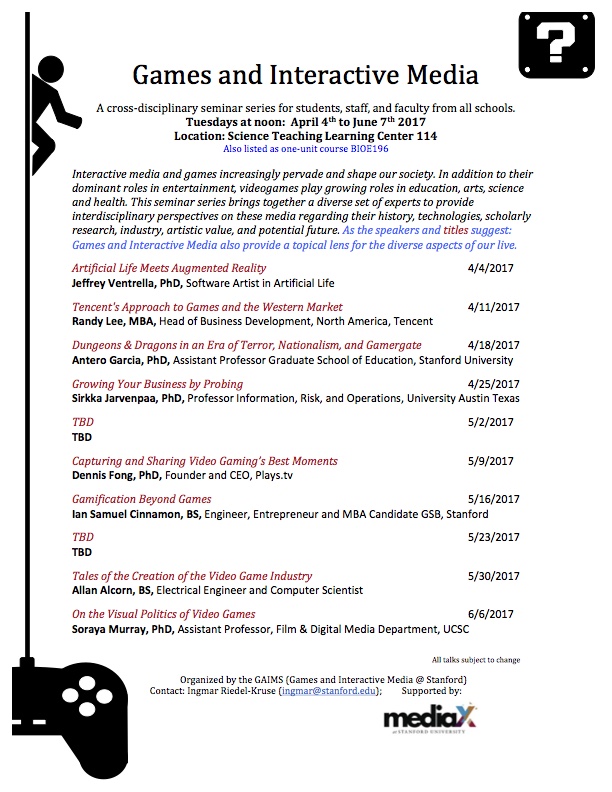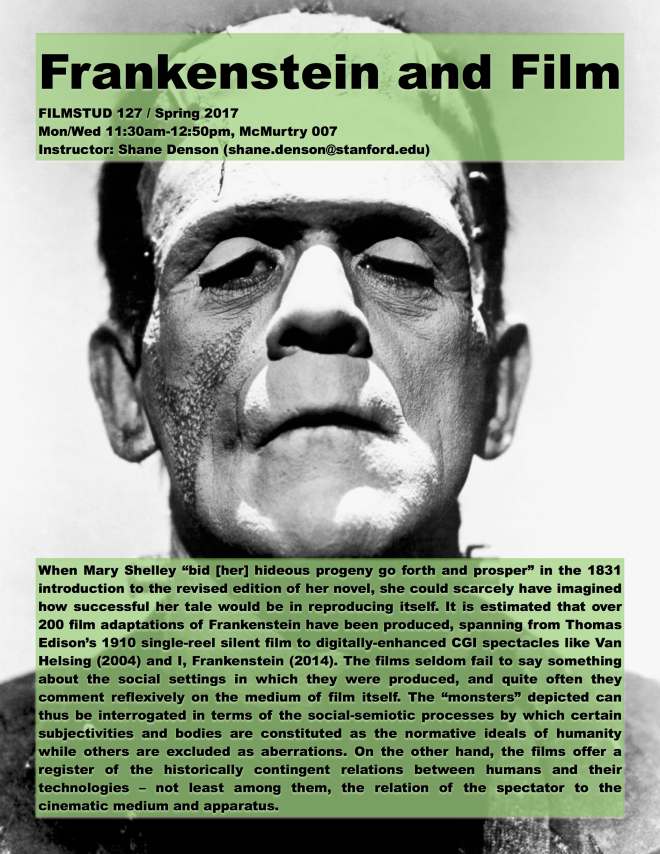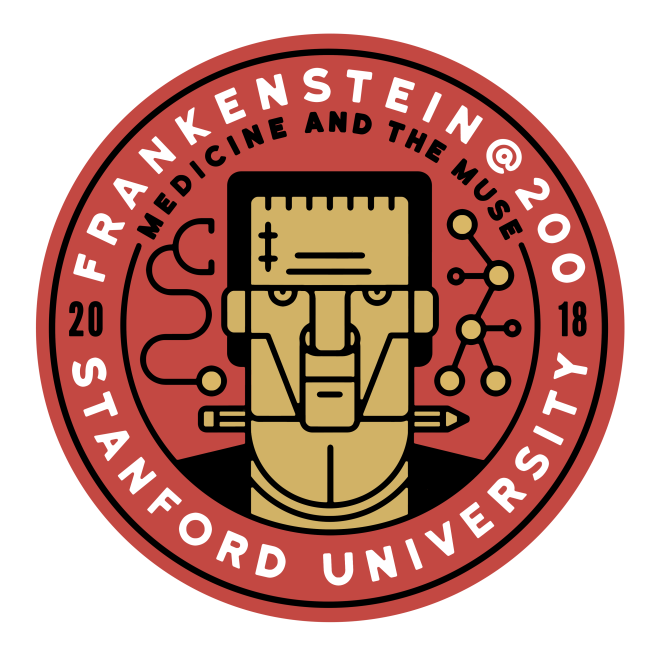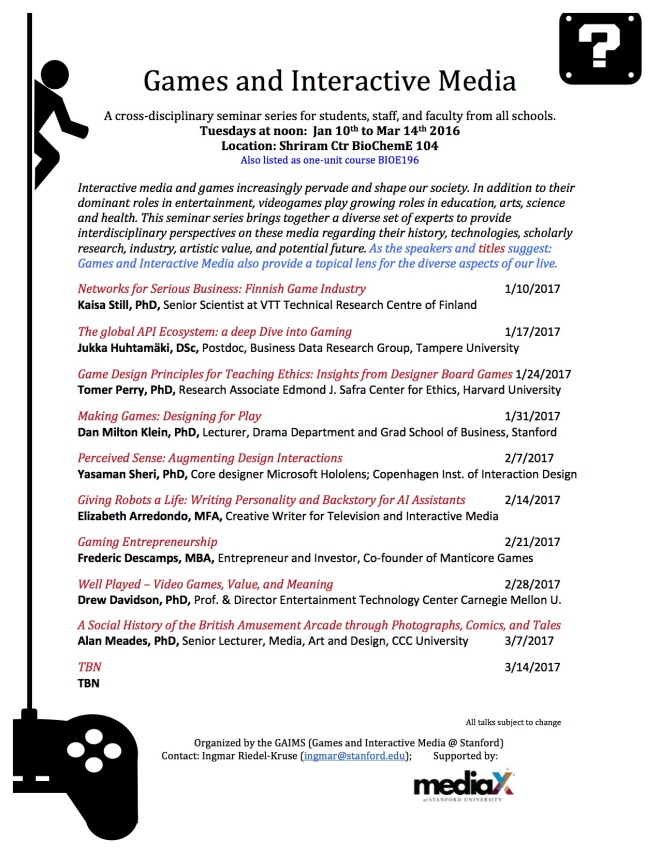
A selection of video essays from the exhibition Post-Cinema: Videographic Explorations, which ran May 1-12, 2017 at Stanford University, is now available for viewing online.
The video essays, by leading filmmaker-scholars Kevin B. Lee and Allison de Fren as well as students in my “Post-Cinema” seminar (winter 2017), deal with a variety of contemporary media forms and phenomena – including digital animation, Beyoncé’s Lemonade and the visual album, contemporary horror, slow cinema, post-cinematic television and transmedia franchises, among others.
You can find the video essays on my website, under “Videographic Scholarship” on the catch-all “STUFF®” page (where you’ll also find a variety of digital and creative projects). Or go straight to the exhibition page.
